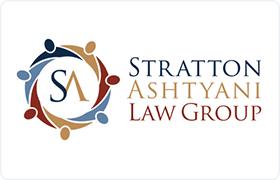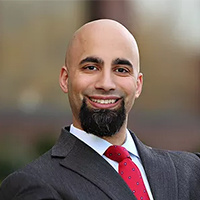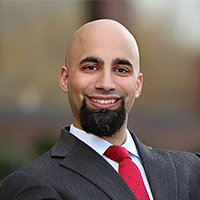 Waldwick Estate Lawyers, New Jersey
Waldwick Estate Lawyers, New Jersey
Sponsored Law Firm
-
 x
x

Click For More Info:
-
Stratton Ashtyani Law Group
795 Franklin Avenue Suite 206 Franklin Lakes, NJ 07417» view mapEstate Law Dedicated To Helping Families Plan
Our attorneys are experienced litigators who understand the importance and efficiency of preventing litigation through proper planning.
800-706-9810
Sponsored Lawyers
1-6 of 6 matches
Estate, Business Organization, Nursing Home, Real Estate, Power of Attorney
Nima specializes in litigation, mediation, and arbitration in with a focus towards elder law matters. He is a Graduate of Seton Hall University School of Law and earned a Bachelors of Science in Business Economics from Rutgers University. He served as a criminal law clerk for the Honorable Patrick J. Roma, J.S.C. for the 2012-2013 judicial term and earned an LL.M. in Dispute Resolution from the prestigious Pepperdine University School of Law, Straus Institute. In his free time, Nima co-runs a podcast called Jurisfiction which is currently on iTunes. So please subscribe to the podcast and follow Jurisfiction’s social media pages!
(more)Commercial Real Estate, Litigation, Estate, Business & Trade
Robert L. Garibaldi, Jr. earned his Juris Doctor degree from Pace University Law School after graduating with honors in accounting from Saint Peter’s University with a Bachelor of Science degree. With over 30 years of expertise, Mr. Garibaldi specializes in corporate and transactional law, civil litigation, municipal law, commercial and residential real estate, estate planning, probate, and banking law. For 25 years, he served as the attorney for the Borough of Glen Rock in Bergen County, managing all aspects of municipal law. His legal practice focuses on business and corporate law, municipal law, litigation, wills and estates, and real estate. Mr. Garibaldi’s accounting background has enabled him to assist clients in preparing for their futures through effective estate planning. He also brings extensive experience in banking law, having served as Chairman of the Board, acting President, and CEO of Hamilton Savings Bank. Mr. Garibaldi is a member of the New Jersey Bar Association, the American Bar Association, and the New Jersey Institute of Municipal Attorneys. In addition to his legal career, Mr. Garibaldi spent several years in public service. He was the Vice-Chairman of the Fee Arbitration Committee for Bergen County and served for eight years on the Kinnelon Board of Education. He is also a founding member of the Kinnelon Education Foundation.
(more)



 Nima Ashtyani Franklin Lakes, NJ
Nima Ashtyani Franklin Lakes, NJ Practice AreasExpertise
Practice AreasExpertise


